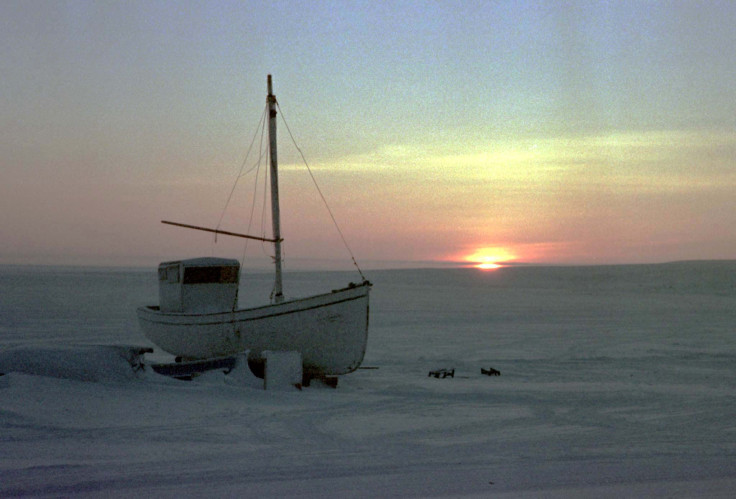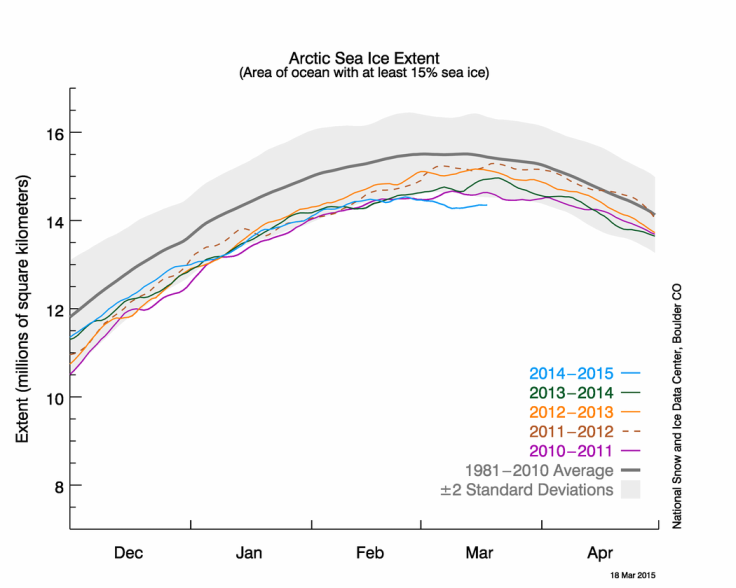Arctic Nations Ban Commercial Fishing In Fast-Thawing Seas Near The North Pole

Five nations, including the United States and Russia, signed an accord Thursday to prohibit commercial fishing in the international waters around the North Pole. The agreement, which aims to prevent further melting of sea ice in the region, came as an annual report on global climate warned of a drastic decline in the area of the Arctic Ocean covered by ice.
“We acknowledge that, due to climate change resulting in changes in ice distribution and related environmental phenomena, the marine ecosystems of the Arctic Ocean are evolving and that the effects of these changes are poorly understood, the signatories to the agreement -- the U.S., Russia, Canada, Denmark and Norway -- said, in a statement. “We share the view that it is desirable to implement appropriate interim measures to deter unregulated fishing in the future in the high seas portion of the central Arctic Ocean.”
The interim agreement applies only to international waters beyond the 200-mile exclusive economic zones of the five nations. Additionally, the agreement also called for more research into marine resources in the Arctic and a greater sharing of scientific data.
“We will establish a joint program of scientific research with the aim of improving understanding of the ecosystems of this area and promote cooperation with relevant scientific bodies,” the agreement said.
According to the State of the Climate report released Thursday by the National Oceanic and Atmospheric Administration, in September last year -- when the annual minimum (lowest extent of ice cover) occurs -- the area of the Arctic Ocean covered by sea ice fell to its sixth lowest extent since satellite records began in 1979.
Another study, by the National Snow and Ice Data Center at the University of Colorado, Boulder, reported that this year’s annual maximum -- reached late in February -- was the lowest on satellite records.

Scientists studying the phenomenon believe that extremely warm temperatures over the Pacific and Arctic regions could be the reason for the record-low ice cover. The melting process also creates a self-sustaining cycle -- high temperatures melt ice, creating open areas of ocean that absorb more heat, which in turn melt more ice.
The melting ice has also opened up the region to more oil and natural gas drilling in the region. In May, U.S. President Barack Obama approved Royal Dutch Shell’s plans to begin drilling for oil and natural gas in the Arctic Ocean north of Alaska -- triggering backlash from environmentalists.
“With this agreement, the Arctic states have recognized that the Arctic Ocean is an extraordinary environment which requires far better scientific understanding. But sadly they have missed the chance to deliver the permanent protection this area desperately needs,” Sophie Allain, Greenpeace’s Arctic campaigner, said, in a statement.
Thursday’s accord, which was originally negotiated in February 2014, was to be signed last year. However, Russia’s annexation of Crimea in March 2014 led to both the U.S. and Canada boycotting the meeting of the Arctic Council in Moscow -- delaying the signing of the agreement.
© Copyright IBTimes 2024. All rights reserved.






















